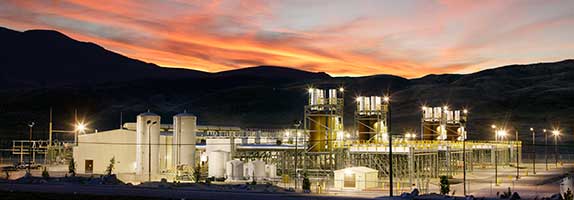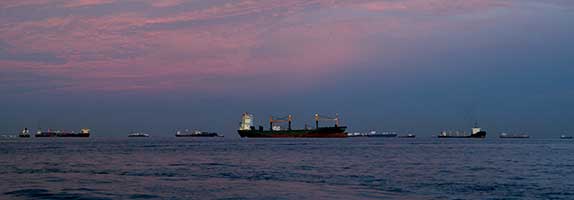


New study projects $17 billion in savings in electricity generation during the decarbonization transition by 2045.
Technology company Wärtsilä Energy has today, together with consulting company Inodú, released a study "Navigating the Energy Transition in Chile: A Reliability-Focused Approach to the Chilean Energy Transition”. The study analyzes the challenges and opportunities of Chile’s clean energy transition. The country, a global leader in renewable energy, with 20% of its electricity coming from solar power and 13% from wind, faces increasing curtailment of solar power caused by the inflexibility of the current power system. The study shows how the next challenge will be reliability issues, caused by structural limitations in the power grid, particularly at night when renewable generation falls short.
The study outlines the large quantities of wind and solar power that need to be installed in various locations. It also defines the quantities of energy storage needed for the system to operate efficiently. When focusing on system reliability, the study shows that Chile could face a capacity deficit exceeding 1,000 MW by 2032 due to the retirement of coal plants, lack of firm capacity, and the inflexibility in thermal generation to manage fast wind generation variations. Projections indicate that without investments in new flexible capacity, gaps of up to 1,788 MW could occur within a single hour during nighttime, forcing reliance on expensive and emissive diesel plants. The study also emphasizes the need for at least 5 GW of gas generation capacity to be maintained through 2032 to ensure system reliability.
The study reveals that replacing aging inflexible power plants with modern, flexible balancing power plants - capable of operating with sustainable fuels- could reduce total electricity generation costs by 5%, amounting to $3.7 billion in savings between 2024 and 2045. Additionally, this approach would avoid $17 billions of generation costs by 2045 that would have to be invested in overbuilding renewable and energy storage capacity to provide security of supply through any and all-weather conditions.
One of the study’s key findings is the critical role of flexible capacity during periods of low renewable generation, providing the firm and reliable capacity needed during these periods. By 2045, these plants would represent only 9% of installed capacity, but would be crucial for security of supply during roughly 600 hours per year, especially under adverse weather conditions. Without these flexible power plants, Chile would need to invest in over 40 GW of excess renewable and energy storage capacity to ensure the same security of supply, significantly increasing system costs.
"Chile is a global leader in the integration of solar and wind generation technologies. To ensure continued success, reliability should be considered the top priority as legacy firm capacity is retired. Our study shows that investment in firm, flexible balancing capacity is the most cost-efficient path to deeply decarbonize the electrical system while maintaining sufficient capacity to navigate a changing climate" says Alex Espejo, Market Development Manager for Wärtsilä in the Americas and one of the authors of the study.
Media contact for more information:
Fernanda Castro
Marketing & Communications Manager, Americas
Wärtsilä Energy
Mob +55 21 98566 1651
fernanda.castro@wartsila.com
Wärtsilä Energy in brief
Wärtsilä Energy is at the forefront of the transition towards a 100% renewable energy future. We help our customers and the power sector to accelerate their decarbonisation journeys through our market-leading technologies and power system expertise. Our solutions include flexible engine power plants, energy storage and optimisation technology, and services for the whole lifecycle of our installations. Our engines are future-proof and can run on sustainable fuels. Our track record comprises 79 GW of power plant capacity, of which 18 GW are under service agreements, and over 125 energy storage systems, in 180 countries around the world.
www.wartsila.com/energy
Wärtsilä in brief
Wärtsilä is a global leader in innovative technologies and lifecycle solutions for the marine and energy markets. We emphasise innovation in sustainable technology and services to help our customers continuously improve environmental and economic performance. Our dedicated and passionate team of 17,800 professionals in more than 280 locations in 79 countries shape the decarbonisation transformation of our industries across the globe. In 2023, Wärtsilä’s net sales totalled EUR 6.0 billion. Wärtsilä is listed on Nasdaq Helsinki.
www.wartsila.com
Inodu
Inodú is focused on providing consulting services and market intelligence aimed at improving the sustainability of the energy value chain for companies, industry associations, investors, governments and regulatory agencies in the North, Central and South America.
Decisions taken by Wärtsilä's Annual General Meeting and Board of Directors
Wärtsilä engines selected as South American vessel operator targets 25% emissions reduction
Please contact us for any further information you may require on our company.
Communications & Branding
Ms Amy Bricker
Communications Manager, Americas
Houston, TX
amy.bricker@wartsila.com
Marine Business
Ms Tamara Rivera
General Manager, Regional Marketing, Americas
Puerto Rico
tamara.rivera@wartsila.com
Energy Business
Ms Fernanda Castro
Marketing Manager, Americas
Brazil
fernanda.castro@wartsila.com